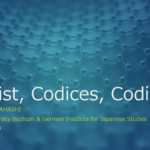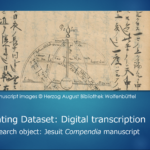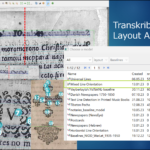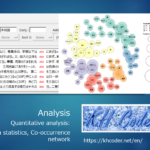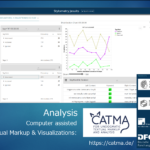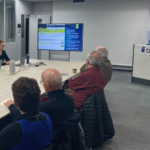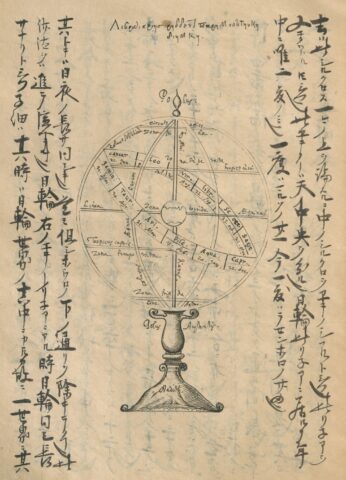
Download
Veranstaltungsort
DIJ (access) and online
Anmeldung
This is a past event. Registration is no longer possible.
DIJ Mailing Lists
Please subscribe below to stay informed about our research activities, events & publications:
Christ, Codices, Coding: Applying AI to Jesuit Written Artefacts
29. Februar 2024
Sophie Takahashi, Ruhr University Bochum/DIJ Tokyo
Slides © Sophie Takahashi
Between 1595 and 1610, amid the “Christian century” in Japan, the first recorded contacts between Europeans and Japanese are taking place. In the Jesuit Colleges in Kyushu, lectures are delivered on Aristotelian philosophy, theology, and Ptolemaic cosmology. These are handed down to us in a tripartite work on science and religion, packed with foreign technical terms and intricate diagrams on the earth and the universe.
In Germany, almost 450 years later in 2019, this work is discovered in the Herzog August Bibliothek Wolfenbüttel: the manuscript Cod. Guelf. 7.5 Aug. 4° is the first complete Japanese translation of the so-called Compendia compiled in Japan. Its potential to yield insights into cultural translation and dissemination of knowledge (hitherto based on an incomplete translation) have long been noted. However, previous research has mainly credited Pedro Gómez as the single author (and sometimes even translator) of all three parts, while the authors, translators, and chronology of the entire compilation process remain unknown.
Bridging the gap between computer science and historical linguistics, this talk presented a novel approach of understanding this written artefact by applying the possibilities artificial intelligence offers. How can the rapid development of AI benefit authorship attribution and chronological allocation? Sophie Takahashi addressed the challenges of finetuning AI-powered tools to historical Japanese, training AI models for text recognition in multiple text directions and writing systems, coding scripts tailored to historical romanization, and conducting quantitative analysis of a comparative text corpus of Jesuit codices. This study on translation – as it was carried out by the pioneers of Western knowledge transfer in Japan – yields results for intercultural and transdisciplinary queries, e.g., how to approach language barriers in religious and scientific discussions and how AI can help us to unlock the past for our future.
The hybrid event attracted a diverse audience of approximately 40 participants, both onsite and online, including members of the general public and esteemed experts in the field. During the Q&A session, we delved into topics such as the advantages and drawbacks of AI, the importance of maintaining a balance between AI and human interpretation, multilingualism, the preservation state of Christian prints in Japanese worldwide, the national identity and native language of Jesuit translators, and the identity of Jesuit scribes.
Sophie Takahashi is a PhD candidate affiliated with Ruhr University Bochum, Faculty of East Asian Studies. Since April 2023 she has been a PhD student at the DIJ. Her research focuses on translation, writing systems, history of science, and digital humanities. Recent publications include “The Samurai and the Cross: The Jesuit Enterprise in Early Modern Japan (Book Review)” in Contemporary Japan (2023) and „『キリシタン文庫』目録に未収録の日本語誓文(ARSI Jap. Sin. 36, 196r–199v) [Beyond the Kirishitan Bunko catalogueʼs blind spot: An overlooked Japanese oath in ARSI Jap. Sin. 36, 196r–199v]“ in Bulletin of Association for the Study of Kirishitan Culture 162 (2023).
